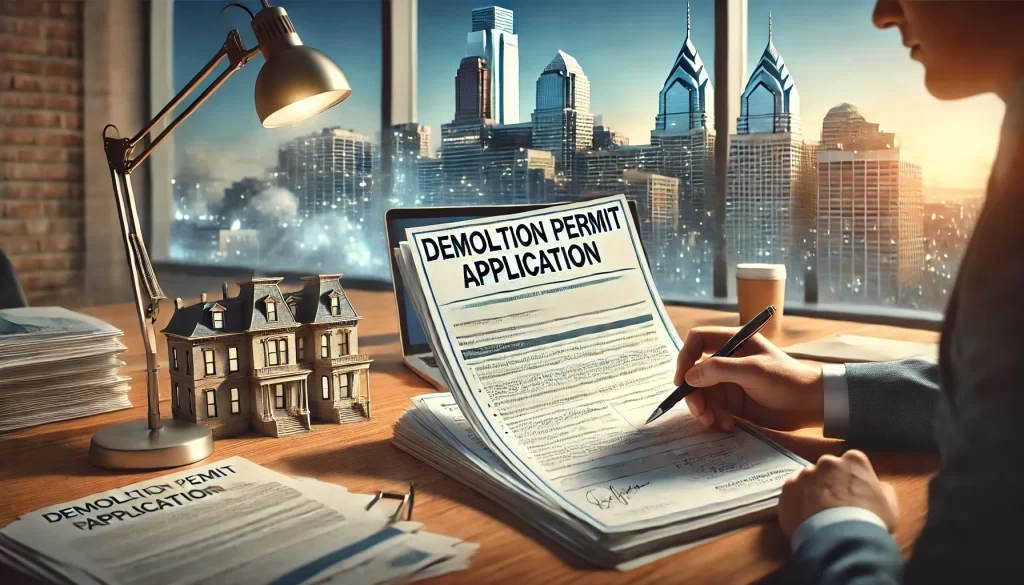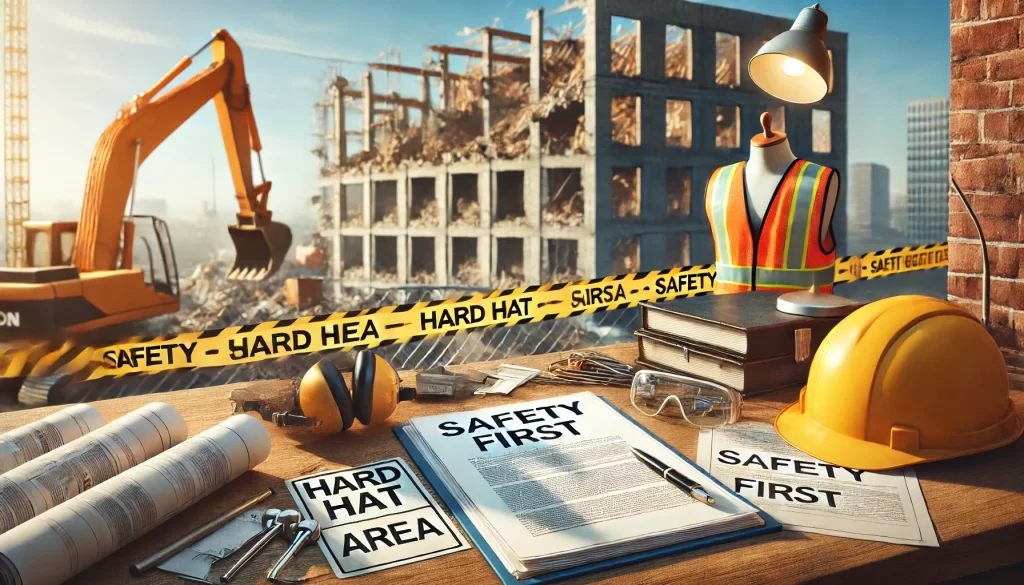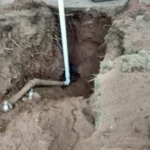Navigating the world of demolition permits in Philadelphia can be a daunting task. From understanding the legal requirements to knowing where to apply, it’s a process that requires knowledge, patience, and a fair bit of paperwork. That’s where we come in, offering a guiding hand to help you cut through the red tape.
In the City of Brotherly Love, demolishing a building isn’t as simple as swinging a wrecking ball. There are codes to adhere to, applications to fill out, and inspections to pass. With our comprehensive guide below, we’ll help you understand the ins and outs of the process, ensuring you’re well-prepared to tackle your next demolition project.
Read on as we delve deeper into the world of demolition permits in Philadelphia, offering expert advice, practical tips, and invaluable insights to help you navigate this complex process with ease.

Understanding Demolition Permits in Philadelphia
Let’s dig a little deeper into the world of demolition permits in Philadelphia. We’ll provide nuances and specifics which can assist you immensely.
Why Permits Are Necessary
City officials monitor demolitions to safeguard Philadelphia’s built environment. Applying for permits translates to informed authorities observing the project; it’s a safety measure engineered to prevent accidents. For instance, if a building with hazardous materials inside is to be demolished, the permit allows for a thorough check to ensure the safe disposal of such materials.
Philadelphia’s Department of Licenses and Inspections enforces these permit requirements, confirming safe and regulated demolitions. Additionally, the permit process ensures that projects comply with zoning laws, which often dictate what type of structures can be built within certain areas.
Key Requirements for Obtaining a Permit
Besides a completed permit application, other requirements aid in obtaining demolition permits in Philadelphia. Preparation of site plans showing existing structures and the ones to be demolished, along with construction documents detailing how the demolition will be carried out, form the primary set of requirements.
Any reputable demolition contractor must also submit proof of insurance. This safeguards all parties involved against potential accidents, ensuring liability cover. In some cases, notices to the neighbors about the impending demolition might be necessary. Informing the neighbors isn’t merely courtesy; it’s a vital part of the process, ensuring that they are aware of the demolition process and can comply with safety measures as well.
An additional requirement involves asbestos inspection. It’s a crucial part of the demolition process, given that airborne asbestos fibers can lead to serious health problems. A licensed professional must perform this inspection to check for the presence of asbestos and certify the building is safe for demolition.
Of course, these are just a few of the requirements. Each project comes with its unique set of stipulations depending on various factors such as the building’s age, location, and structural condition. It’s recommended that one consult with the Department of Licenses and Inspections to get a comprehensive list of requirements.
Steps To Acquire a Demolition Permit
Embarking on the journey to secure a demolition permit in Philadelphia entails several stages. Each step plays a significant part in ensuring safety and compliance with zoning laws.
Initial Application Process
The quest for a demolition permit begins with the initial application. Different types of demolition (interior, exterior, full, or partial) demand varied applications. Carefully understand the project’s specifics and decide on the appropriate form. The forms are usually available online on the Department of Licenses and Inspections website.
Documentation and Fees
After picking the correct form, gather the required documents. These usually include a detailed site plan, updated construction documents, and proof of insurance. Remember, depending on the property’s age and location, you might also need to provide a neighbor notification and an asbestos inspection report. Once all documents are in place, pay the application fee. It’s best to check the current fee schedule on the Department’s website to be aware of the exact cost.
Inspection and Approval
The final step entails inspection and approval. After submitting the application, an authority from the Department schedules a site visit. They inspect the site to confirm the data provided aligns with the actual property conditions. Approval follows a satisfactory inspection. If the inspector finds everything in line with your application, they’ll issue the demolition permit. You’re then legally allowed to commence the demolition process.
Common Challenges and Solutions
Embarking in the process of obtaining a demolition permit in Philadelphia may present bumps along the way. Notably, delays and rejections in the permit process can pose significant challenges. However, by adhering to certain practices, smooth approval becomes possible.
Dealing With Delays and Rejections
Delays occur when the Department of Licenses and Inspections finds the application incomplete or lacking appropriate detail. To address this, double-check all documents for completeness and accuracy before submission. Additionally, seek proofreaders, such as colleagues with an understanding of demolition permits, to prevent application rejections.
Specifically, rejections arise when stipulated requirements are not met. For example, a lack of neighbor notifications or omitting asbestos inspections results in outright denials. Immediate rectification of this is necessary. Notify neighbors when required and ensure asbestos inspections are up to date. Don’t forget, neighborhood complaints might also lead to delays. If a complaint arises, address it swiftly and professionally to keep the approval process moving.
Best Practices for Smooth Approval
For smooth sailing during the approval process, we advise always keeping communication open with the Department of Licenses and Inspections. Additionally, stay updated on its protocols and policies. Policies could change, hence the need to ensure your process aligns with the current rules.
Also remember, documentation equates to proof. One example of this, always keeping proof of insurance handy. Prompt provision of this to inspectors can ease the approval process. Similarly, maintain detailed site plans and construction documents, as these can hasten inspections and approvals.
Clearly, delays may occur, but taking these steps ensures efficient resolution and approval continuation. The process may seem daunting, but with proper preparation and adherence to these practices, a smoother approval process is achievable.
Legal and Safety Considerations
In this section, we delve into the critical aspects of legal regulations and safety compliance in Philadelphia’s demolition landscape. Remain mindful of these considerations to avoid legal disputes and ensure safe demolitions

Regulations To Keep in Mind
Overlooking important legislation can lead to substantial fines or even suspension of a project. In Philadelphia, demolitions are subject to local, state, and federal laws:
- Philadelphia Code: Buildings under demolition must adhere to the conditions outlined under Title 4 – The Philadelphia Building Construction and Occupancy Code. Non-compliance may result in stringent penalties.
- State Regulations: The Pennsylvania Construction Code Act (Act 45 of 1999) governs state-wide construction and demolition activities. It prescribes guidelines for building safety, plumbing, electrical systems, and energy efficiency.
- Federal Laws: Asbestos abatement and disposal, for example, are regulated by the United States Environmental Protection Agency (EPA). Non-compliance might result in severe penalties under Superfund (CERCLA) and the Resource Conservation and Recovery Act (RCRA).
Remember, ignorance of the law is not an excuse. It’s best practice to consult a legal advisor familiar with construction and demolition laws before initiating any demolition process.
Importance of Safety Compliance
Ensuring safety is not just about avoiding accidents. It’s a legal obligation.
- Personal Safety Measures: The Occupational Safety and Health Administration (OSHA) mandates wearing personal protective equipment (PPE) like hard hats, safety glasses, high visibility vests, and gloves during demolition operations.
- Site Safety Measures: Erecting a protective fence around the demolition site, developing a site-specific safety plan, and having evacuation routes in place are mandatory safety measures.
- Public Safety Measures: In densely populated areas like Philadelphia, public safety measures such as appropriate signage, controlling dust emissions, and mitigating noise pollution are vital. You’re responsible for pedestrians’ safety and protecting surrounding properties.
Complying with safety regulations mitigates risks, promotes a safe working environment, and reduces the likelihood of legal repercussions. It’s crucial to regularly review and update safety measures to align with evolving regulations and mitigate safety risks effectively.
Conclusion
We’ve walked you through the ins and outs of securing demolition permits in Philadelphia. It’s clear that these permits aren’t just paperwork but are key to safe demolitions and legal compliance. Navigating the application process might seem daunting, but remember, choosing the right form and providing comprehensive documentation can streamline approvals. Even when faced with delays or rejections, there are always solutions at hand.
Philadelphia’s demolition landscape is governed by a mix of local, state, and federal laws. Staying on top of these, including the Philadelphia Code and Pennsylvania Construction Code Act, is crucial. Let’s not forget the federal laws around asbestos abatement. Safety should always be paramount, so ensure you’re conducting regular reviews and updates of safety measures. This way, you’ll mitigate risks, create a safe work environment, and avoid any legal headaches. So, with knowledge and due diligence, you’re now well-equipped to handle your next demolition project in Philadelphia!



